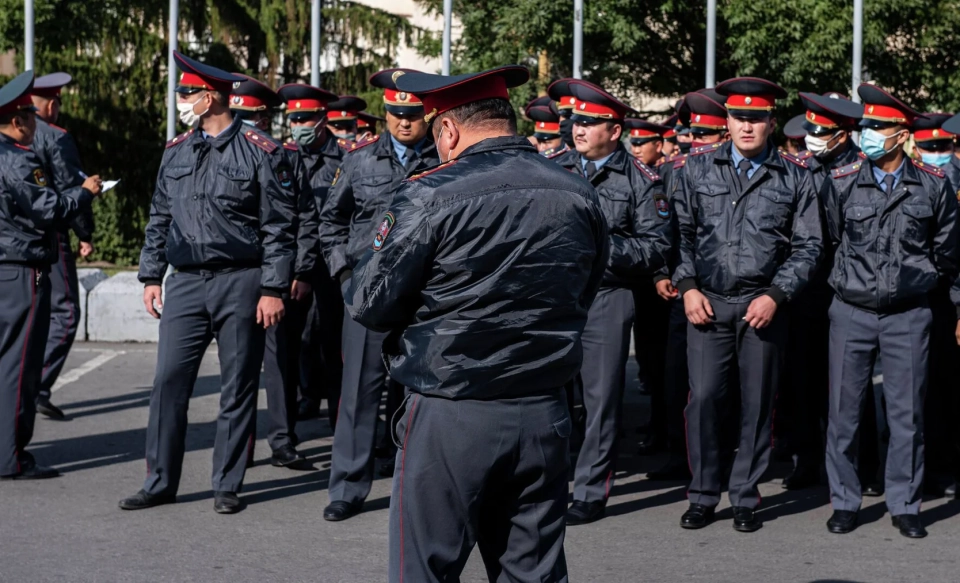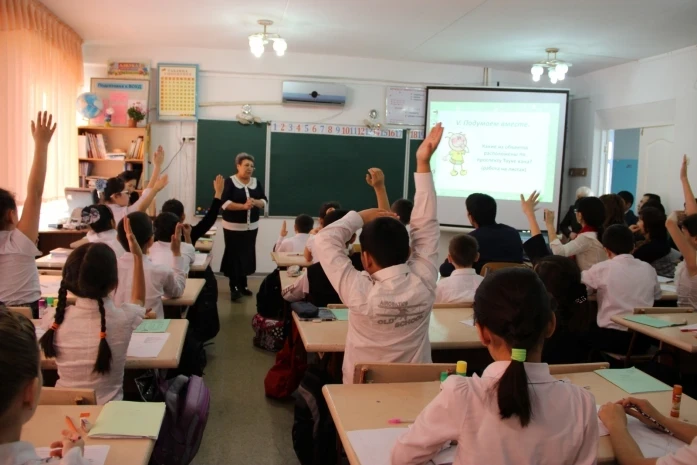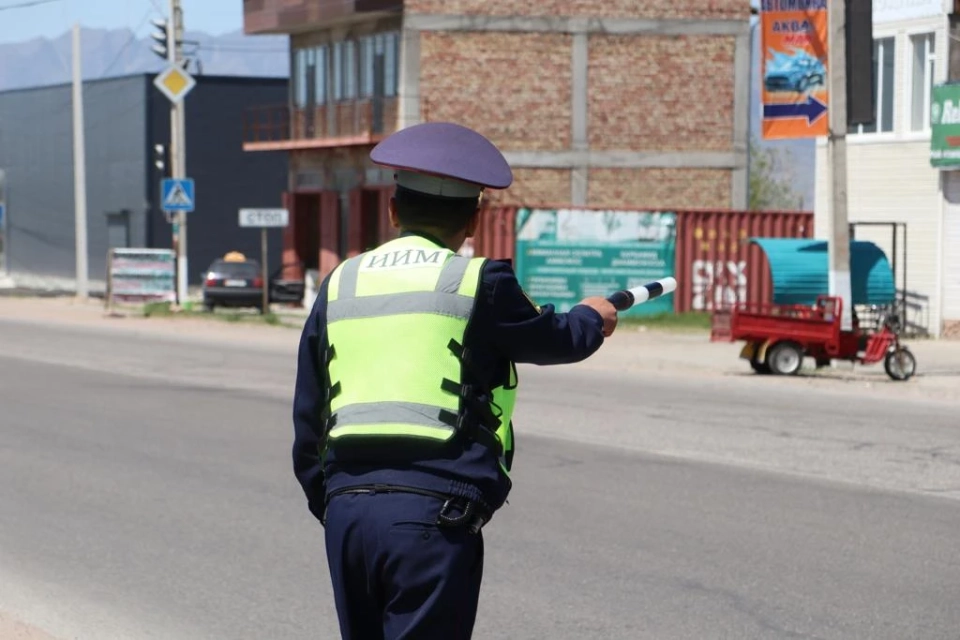
In Bishkek, from November 25 to 27, educational institutions, including schools and universities, temporarily switched to online format due to a CSTO meeting.
24.kg decided to recall key moments when, over the past year, students were forced to switch to distance learning and the reasons for this.
1
In mid-October, municipal schools switched to online learning for one day in response to threats of attacks on students. On October 16, a video was posted on one of the messaging apps showing a man threatening physical harm to schoolchildren.
Later, the police identified the person making the threats: he turned out to be a citizen of Ukraine, Yaroslav Ovsyuk. Although the threats were part of phone terrorism and had no basis, schools still conducted classes in online format.
2
From September 1 to 15 of this academic year, students of all higher and secondary vocational educational institutions in Bishkek, except for medical ones, studied in online mode. The authorities explained this decision by the holding of international events in the capital and road works.
3
During the Nationwide Testing from May 18 to 24, several schools also switched to distance learning by order of the Ministry of Education and Science of the Kyrgyz Republic, as exams were held on the premises of the institutions.
4
On March 25, five educational institutions in Bishkek switched to online learning due to power and water supply outages.
5
By order of the director of the capital's education department, Rakhmat Musaev, on March 12-13, during the state visit of the President of Tajikistan Emomali Rahmon, school students in Bishkek studied remotely. During this time, some streets in the city and Chui region were closed.
As a result, schoolchildren spent 25 days in online learning mode, which constitutes 1/9 of the academic plan.
Parents' opinions on this matter were divided. One of them noted to 24.kg that she was happy with the online format, as it eliminates the need to transport children through traffic jams to schools and kindergartens.
“Every parent is happy when children learn online: the program remains the same, and trips through traffic jams are excluded — this saves time and resources, as most schoolchildren commute by transport. It also increases safety: I feel calmer when my child is at home,” shared a mother’s opinion.
At the same time, another mother expressed doubt about the effectiveness of online learning. She believes that children absorb significantly less information while at home.
“From a scheduling perspective, this certainly creates problems: it disrupts the timetable and leads to absences in the educational process. But when there are threats, you understand that these are forced measures. If there is a risk of explosions or attacks, I choose safety,” she said.
A teacher from one of the capital's schools told 24.kg that even short-term online learning is undesirable.
Modern distance learning in many schools most often involves not classes in Zoom, but simply completing assignments, which reduces the quality of education.
“Children mostly do nothing, there is almost no control. I know that most kids don’t even open their textbooks, and it’s hard for teachers to monitor the learning process remotely. Many teachers are older, not tech-savvy, and find it difficult to conduct lessons on online platforms,” noted the educator.
An art historian and painting instructor from a college in Bishkek added that for her and other teachers of technical disciplines, the online format simply does not work. On such days, all her classes are canceled, and students have to catch up on the material.










